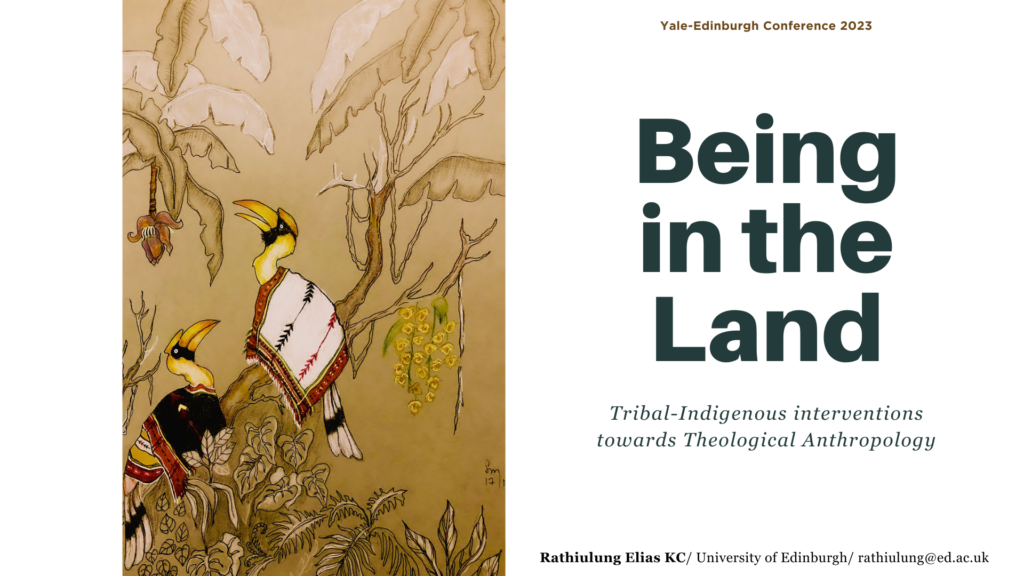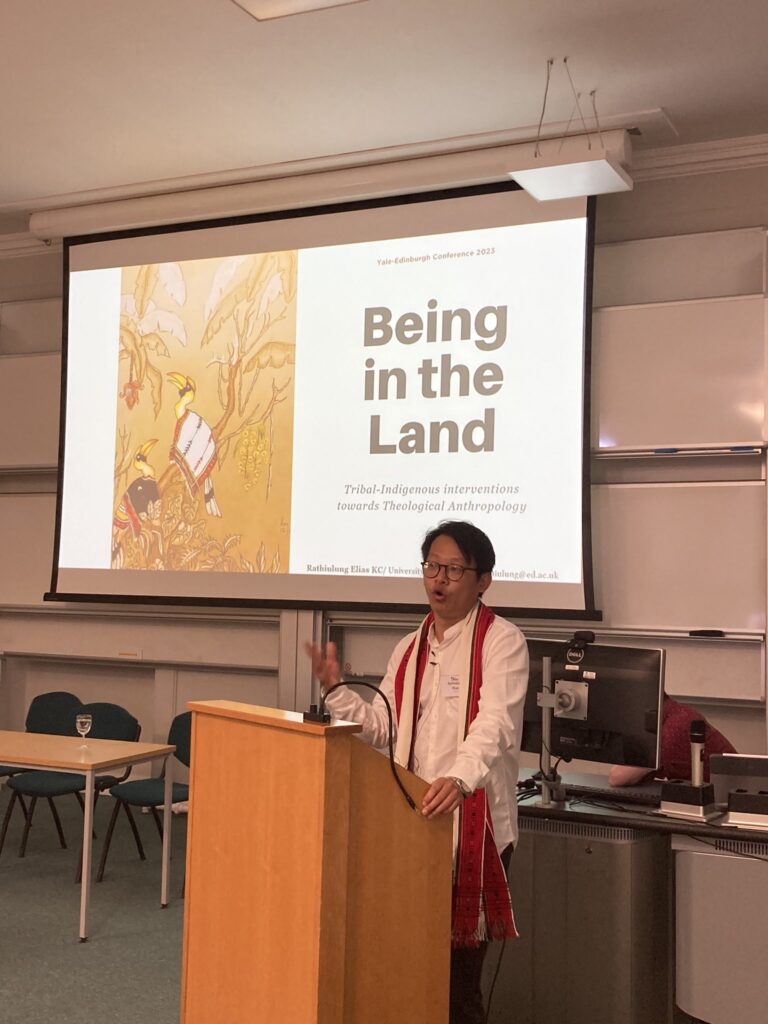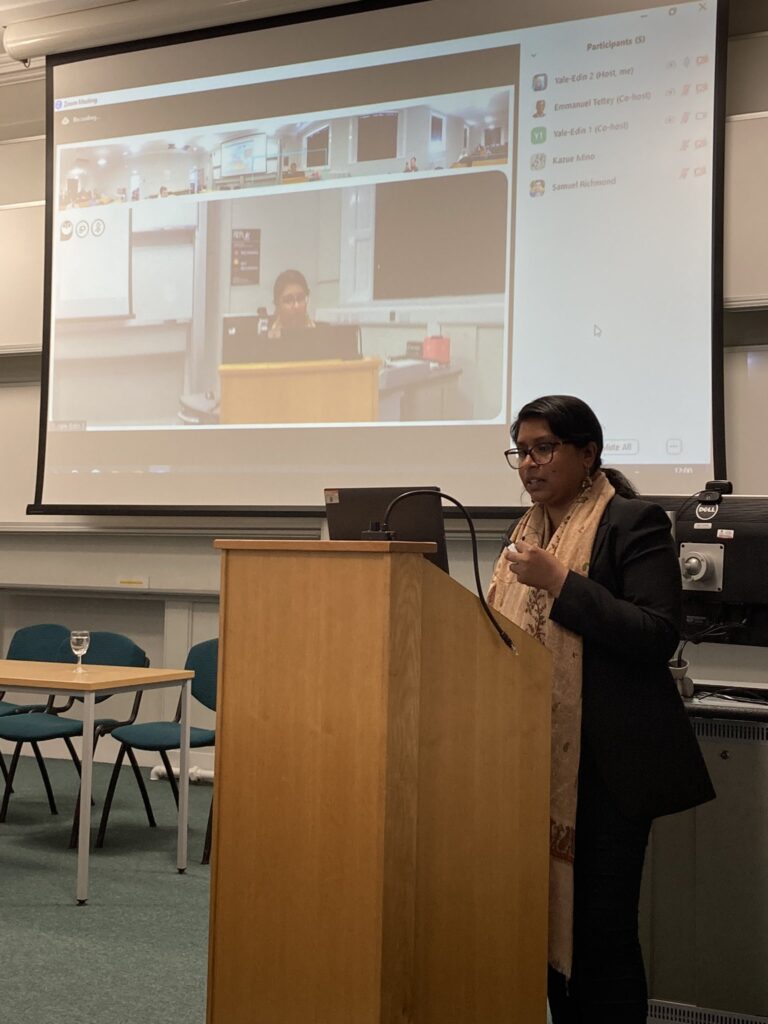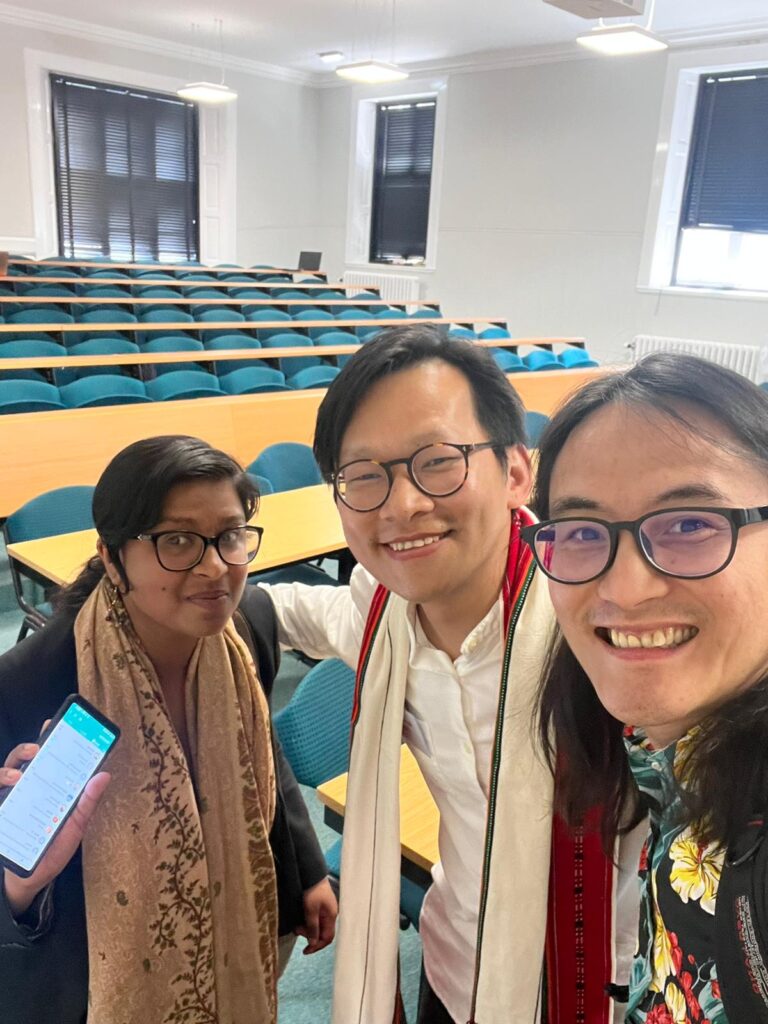
21st–23rd June 2023 #YaleEdin2023
The paper explores a Tribal-Indigenous articulation of theological anthropology and reflections on its corresponding eco-ethics and praxes. It draws resource from the lifeworlds of the Naga people (Northeast India) that portray humans in interconnected relations, recognising their respective place and agency alongside other non-humans and the land. Building constructively through qualitative research methods on narratives, practices, and ethos of the Naga communities and their lived experiences of immediacy with the land, the paper brings them in conversation with Scriptural and select theological works (tentative list: Tribal Theology of Northeast India, Rowan Williams’ Christ the Heart of Creation, Niels Henrik Gregersen’s ‘deep incarnation’, and Celia Deane-Drummond’s eco-theology). Throughout, I will attempt to locate these theological discussions in concrete real cases, reflecting specifically on what I perceive as relational shifts between Rongmei Christian communities and the migratory bird, Akhoipuina (Rongmei name for Amur falcons, Falco amurensis). As critique and corrective, the paper proposes a theological eco-anthropology that is reconfigured in the Incarnation and informed by indigenous sensibilities: that recognises the interconnectedness, place, and agencies of other creatures, and the status of ‘being co-creatures’ in relation to the Creator. Additionally, I suggest that indigenous practices could be reinterpreted as praxes of eco-consciousness, of ‘being in the land’. This theological articulation is not only attentive to eco-ethics and praxes of eco-consciousness, but is open to the roles of non-humans and the land as witness and mediators of the Creator God.





Leave a Reply